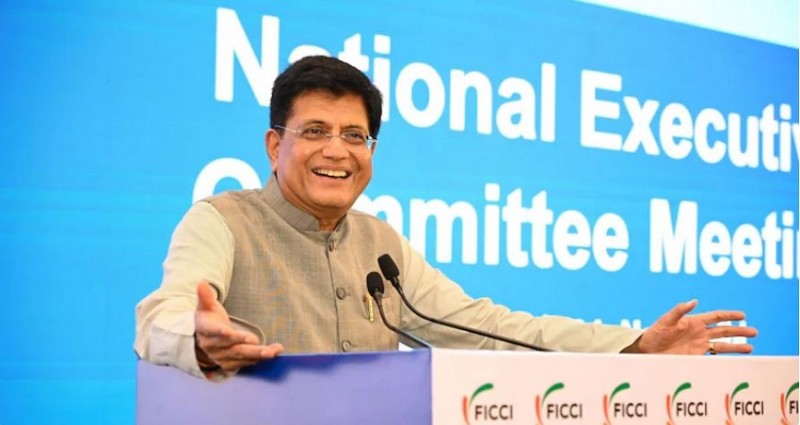
NEW DELHHI: Commerce and Industry Minister Piyush Goyal confirmed that India will not change its stance on foreign direct investments (FDI) from China, despite recommendations from a recent Economic Survey suggesting such investments could bolster India's global supply chain and increase exports.
Addressing the issue on Tuesday, Goyal emphasized that the government has no plans to support FDI from China. He clarified that the Economic Survey, which proposed this idea, serves as a report offering new perspectives but is not binding on government policy.
Additionally, Goyal mentioned that India is considering the European Union’s suggestion to develop its own carbon tax mechanism in response to the EU's proposed carbon border adjustment mechanism (CBAM).
Since 2020, India has required government approval for FDI from countries sharing a land border with India. This policy affects nations like China, Bangladesh, Pakistan, Bhutan, Nepal, Myanmar, and Afghanistan. The Economic Survey, released before the Budget on July 22, had suggested inviting FDI from China to strengthen local manufacturing and enhance export potential.
The survey argued that as the US and Europe move away from sourcing products directly from China, having Chinese companies invest in India and export from there could be more beneficial. The survey highlighted two strategies for India to leverage the 'China plus one' approach: integrating into China's supply chain or promoting FDI from China. It concluded that encouraging FDI would be more advantageous for boosting exports to the US, similar to strategies employed by East Asian economies in the past. Given that China is India's largest import partner and the trade deficit with China is expanding, this strategy was deemed more favorable than relying on trade alone.
Despite these suggestions, Goyal reiterated that the government is not reconsidering its stance on Chinese investments. China ranks 22nd in FDI equity inflow to India, contributing only 0.37% ($2.5 billion) from April 2000 to March 2024.
Tensions between India and China have been high since the Galwan Valley clash in June 2020, the most severe military conflict between the two countries in decades. This standoff, ongoing since May 2020, remains unresolved, though disengagement from several conflict points has occurred. India maintains that normal relations with China are contingent on peace in the border areas.
In response to these tensions, India has banned over 200 Chinese apps, including TikTok and WeChat, and rejected significant investment proposals like that from electric vehicle maker BYD. However, earlier this year, the Competition Commission of India (CCI) approved JSW Group's acquisition of a 38% stake in MG Motor India Pvt Ltd, a subsidiary of Shanghai-based SAIC Motor.
While FDI from China remains minimal, bilateral trade has grown significantly. China became India's largest trading partner in 2023-24, with trade totaling $118.4 billion, surpassing the US. India's exports to China increased by 8.7% to $16.67 billion, with significant growth in sectors like iron ore, cotton yarn, handloom products, spices, fruits and vegetables, plastic, and linoleum. Imports from China rose by 3.24% to $101.7 billion, widening the trade deficit to $85 billion from $83.2 billion the previous year.
China has been one of India's top trading partners for several years, alternating with the UAE and the US. The dynamic economic relationship continues to evolve amid ongoing political and strategic challenges.
Recent Other News Coverages: